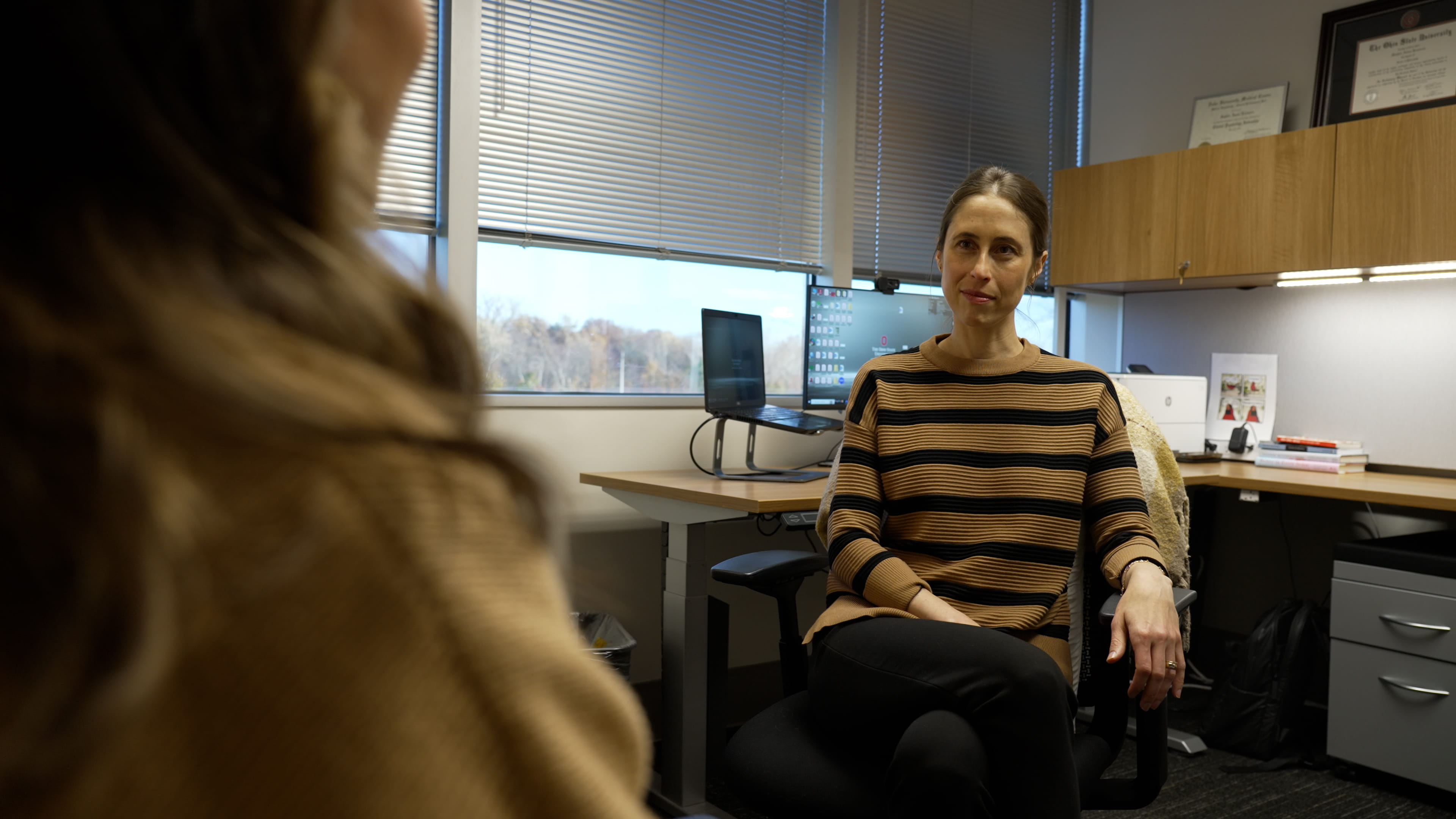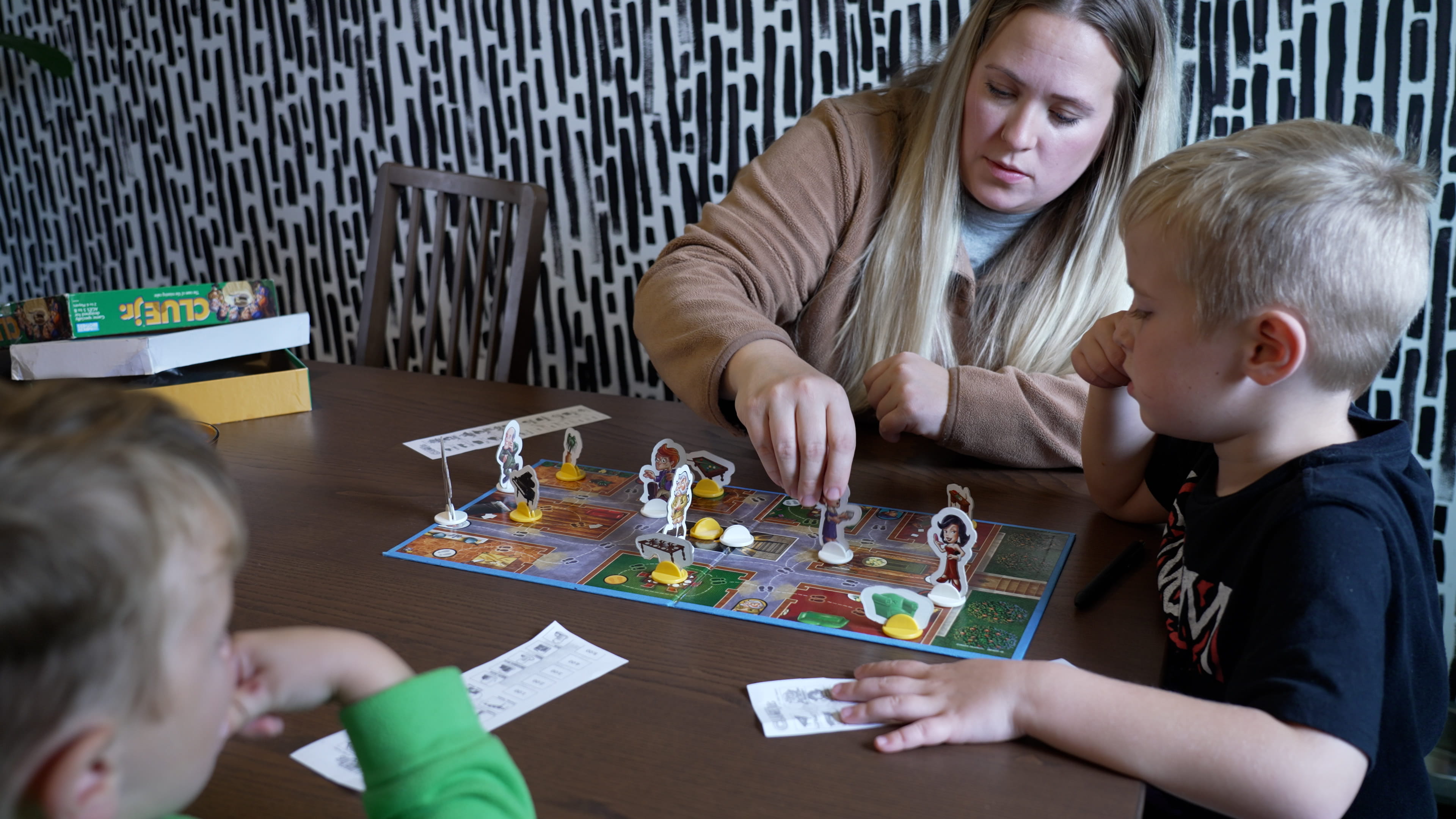December 3, 2024
COLUMBUS, Ohio – Some say the holidays are the most wonderful time of the year. But for others, the hectic holiday season may be the most stressful.
A new national survey of 1,000 Americans commissioned by The Ohio State University Wexner Medical Center and College of Medicine shows that 46% of Americans say they get less alone time around the holidays.
In addition, 56% of survey respondents say that it’s very important to their mental health to have adequate alone time.
 Sophie Lazarus, PhD, a clinical psychologist in the Department of Psychiatry and Behavioral Health at Ohio State, says in a world that glorifies staying busy, taking a brief break alone can be rewarding both mentally and physically.
Sophie Lazarus, PhD, a clinical psychologist in the Department of Psychiatry and Behavioral Health at Ohio State, says in a world that glorifies staying busy, taking a brief break alone can be rewarding both mentally and physically. A few minutes to yourself can reduce the stress of the season and help your mental health, she said.
“By taking a brief pause alone, our nervous system can settle, our mind can settle, our body can settle. And I think that can be important. We know that chronic stress is not good for us,” said Lazarus.
It’s important to make yourself a priority, and this can be accomplished by adding something simple to your routine that doesn’t require a large chunk of time or effort, Lazarus said.
Lazarus, who focuses on mindfulness-based interventions, mood and anxiety disorders, has a few suggestions to help stressed out people stay present throughout the hustle and bustle of the holiday season.
 “Try putting your phone in a totally different room when you decide you're going to spend alone time knowing how hard it is, knowing how hard it is to resist picking it up, the pulls on our attention and on our priorities,” Lazarus said. “Or take two or three minutes in the car before you go pick your kids up or before you go back into the house after work to just be alone.”
“Try putting your phone in a totally different room when you decide you're going to spend alone time knowing how hard it is, knowing how hard it is to resist picking it up, the pulls on our attention and on our priorities,” Lazarus said. “Or take two or three minutes in the car before you go pick your kids up or before you go back into the house after work to just be alone.” Lazarus says to take what works best for you into consideration when making these changes to your routine.
“One size doesn't fit everyone. Being flexible and finding a balance is best,” Lazarus said.
Lazarus reminds patients it’s okay to take alone time.
 “I think it's important to remember that just because you're prioritizing yourself at this moment doesn't mean that you're selfish and doesn't mean that you always make the choice to prioritize yourself over others,” Lazarus said.
“I think it's important to remember that just because you're prioritizing yourself at this moment doesn't mean that you're selfish and doesn't mean that you always make the choice to prioritize yourself over others,” Lazarus said.Alone time doesn’t have to be solo, either.
“Some people might experience alone time from going to a movie by themselves or going to a park where there's a lot of people, or going to a coffee shop,” Lazarus said. “It can also be this absence of having to perform or interact socially in a more direct way.”
Survey Methodology
This survey was conducted by SSRS on its Opinion Panel Omnibus platform. The SSRS Opinion Panel Omnibus is a national, twice-per-month, probability-based survey. Data collection was conducted from October 4 – October 7, 2024, among a sample of 1,004 respondents. The survey was conducted via web (n=974) and telephone (n=30) and administered in English. The margin of error for total respondents is +/-3.5 percentage points at the 95% confidence level. All SSRS Opinion Panel Omnibus data are weighted to represent the target population of U.S. adults ages 18 or older.
###
Media Contact: Eileen Scahill, Wexner Medical Center Media Relations, Eileen.Scahill@osumc.edu
Top Photo Caption: Sophie Lazarus, PhD at The Ohio State University Wexner Medical Center says not all alone time is created equally. She tells her patients to spend the time in ways they feel will most benefit their mental health, whether that’s in public or private settings.
Middle Photo Caption: Hilary Hawk can be present for her three boys because of the brief moments of alone time she finds throughout the day.
Bottom Photo Caption: Sophie Lazarus, PhD, clinical associate professor of Psychiatry and Behavioral Health at The Ohio State University Wexner Medical Center and member of the American Psychological Association, the Association for Behavioral and Cognitive Therapies and the Society of Clinical Psychology.

